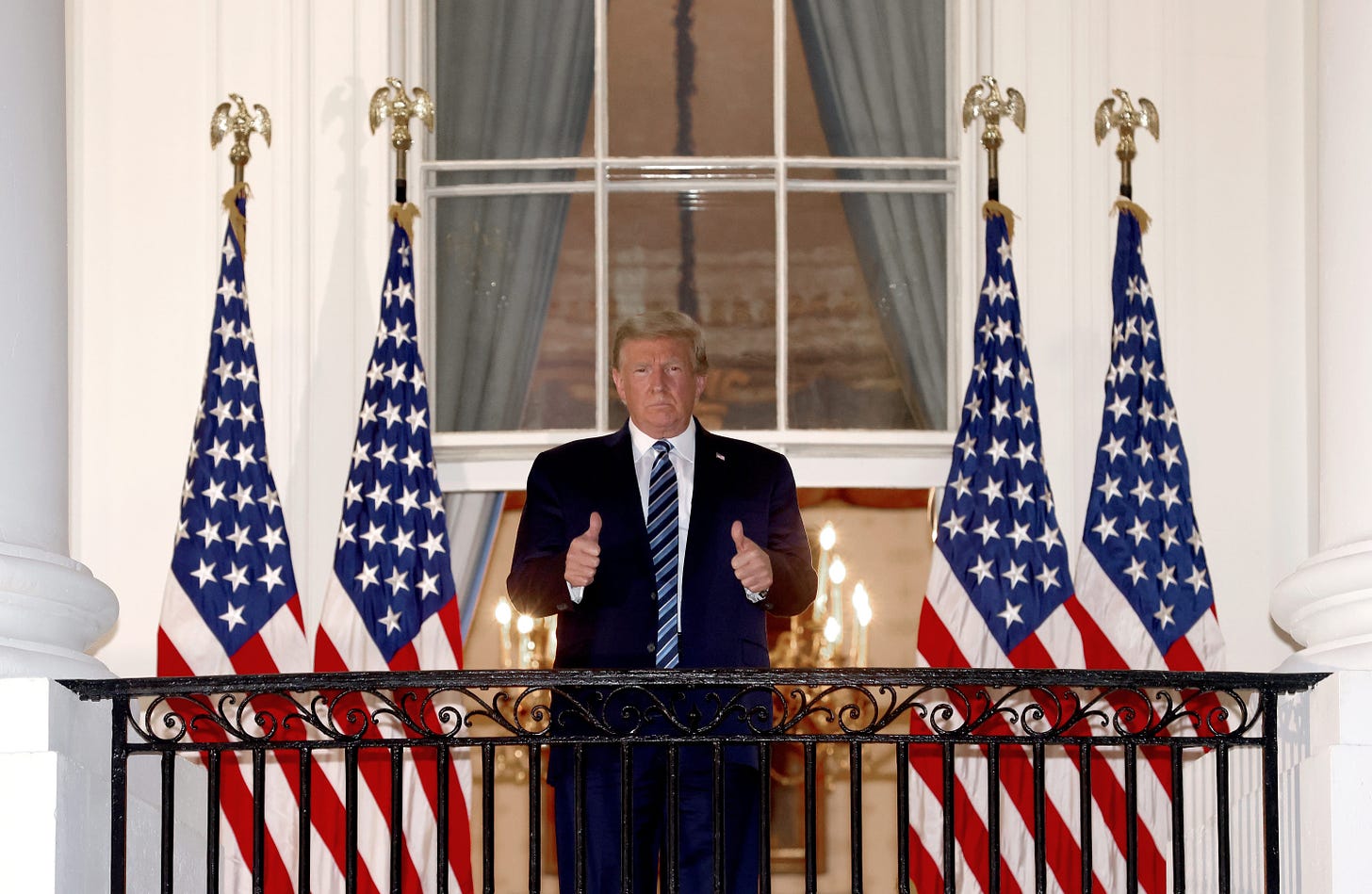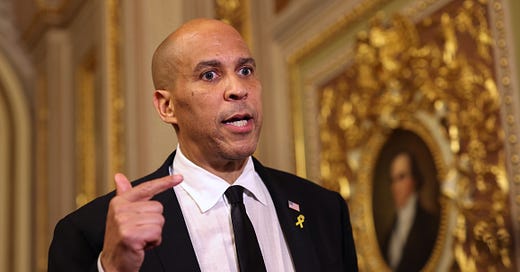
The Flaw in the Twenty-Fifth Amendment
The Constitution is not self-executing. It is only so good as it is enforced and respected.

With Donald Trump just out of Walter Reed hospital after days of COVID-19 treatment and Election Day scarcely a month away, the world is understandably abuzz over the fate of his campaign. More worrisome, though, is what happens to the commander-in-chief post if Trump, now back in the White House, were to be incapacitated by the virus—or worse, if he were to join the 210,000 Americans who have died from the scourge so far. The Constitution’s Twenty-fifth Amendment was ratified after President John F. Kennedy’s assassination precisely to deal with such contingencies, but like many other parts of the Constitution, it is destined for obsolescence thanks to the Trump administration’s lies, obfuscation, and norm-busting.
It turns out that the Constitution mostly runs on the honor system. But for that to work, voters must elect lawmakers and presidents who possess a core value system that calls for fidelity to the rule of law. Alas, many of us are only just discovering this truth. It might be too late to address it.
The Twenty-fifth Amendment says three important things. First, if Trump were to die in office, it would automatically make Mike Pence president. Pence could then nominate a vice president to replace him, but that pick must be confirmed by a bare majority vote of both Houses of Congress. That’s the easy part.
Second, it gives Trump the discretion to decide that he’s “unable to discharge the powers and duties of his office” in the event he becomes very sick with COVID-19. He would then transmit a written declaration to Chuck Grassley (as the president pro tempore of the Senate—the member designated to take Pence’s place presiding over the Senate) and Nancy Pelosi. Once Trump sends that message, Pence would automatically become “acting President” until Trump “transmits to them a written declaration to the contrary.”
Of course, the notion that an ailing Donald Trump would step aside from his position as the most powerful man in the world for the good of the country is sheer folly. It would never happen. The one thing we know for sure from Trump’s coronavirus episode is that he doesn’t care much about other people’s health or well-being, including that of the populace writ large. After all, it’s likely that he knowingly infected people at a Minnesota fundraiser before announcing that he had tested positive, and he likely knowingly infected people—public servants who swore to protect him as president, mind you—when he took his reckless joy ride around the hospital grounds so he could wave to adoring fans.
Which brings us to the third important part of the Twenty-fifth Amendment. If Pence and a majority of Trump’s cabinet decide that the president is so gravely ill that he is unable to discharge his duties, they can send their own missive to Grassley and Pelosi. In that event, Pence “shall immediately assume the powers and duties of the office as Acting President.” The Constitution allows the president to send a counter-declaration that he is fine—although in theory, if he were fine, there’d be no need to invoke this emergency measure. (The Constitution also gives Congress the authority to designate people other than Pence and a majority of cabinet officers the ability to trigger this chain of events, but Congress hasn’t done that, so it’s beside the point.)
All of this assumes not only that Trump would execute his duties and obligations somberly and for the good of the republic even if it meant yielding power (which is all but an impossibility), but also that Pence and Trump’s executive branch appointees would do the same with regard to their respective oaths of office.
This is really where the Constitution has broken down.
The Constitution is not self-executing. It is a piece of paper. It is only so good as it is enforced and respected. In the last few days, the American people have heard that Trump’s blood oxygen levels have dropped at least twice, that he was airlifted to the hospital from the White House, and that he has been given a range of drugs reserved for at-risk patients, including “an experimental antibody cocktail”; the drug remdesivir, which was granted authorization by the Food and Drug Administration on an emergency basis; a range of supplements; and dexamethasone, a steroid that decreases the body’s inflammatory reaction to the virus. (It is the inflammation that causes the horrific lung disease associated with COVID-19.) In rare cases, dexamethasone has been linked to “grandiose delusions, psychosis, delirium, and hallucinations.” There’s much more we don’t know.
If Trump were to succumb to delusions or psychosis due to dexamethasone, would the American public even know?
If Trump, while still in the hospital, had wound up on a ventilator unable to speak—or if he were discharged from Walter Reed with some combination of COVID-19’s adverse side effects to the heart, lungs, or brain, including possible strokes, seizures, or a temporary paralysis called Guillain-Barre syndrome—again, would the American public even know?
Given this administration’s lies, and even the caginess of the president’s physicians (not just over the last few days but over the last few years), how much stock can the public put in their pronouncements?
And it’s not just about what the public knows; there is no reliable legal mechanism in place for delivering information on the president’s health to the other top government officials. Nancy Pelosi is third in line for the presidency under the Presidential Succession Act, but she told Face the Nation on Sunday that “We’re getting our information the way everyone else is—in the media.”
Suppose a foreign terrorist attack occurred on American soil between now and January 20, when the new or re-elected president is constitutionally required to take office. If Trump were too ill to function but nobody but his inner circle even knew, who would take the helm? Jared Kushner? With no transparency or oversight, how many more might die as a result of the inevitable White House chaos? The Twenty-fifth Amendment answers these questions, but its invocation requires the sycophants surrounding the president to honor it.
Once again, the Trump administration is poised to steamroll over the Constitution itself while the rest of us are left to witness a fundamental reshaping of the United States government—probably for keeps.










